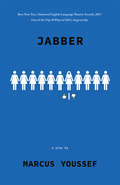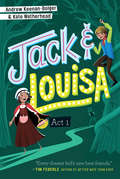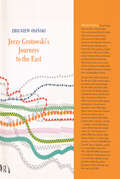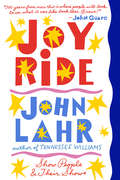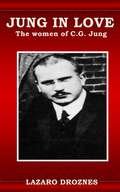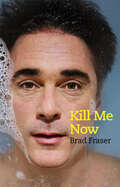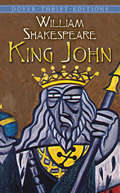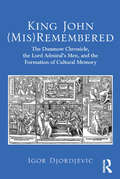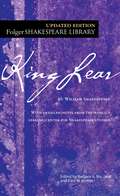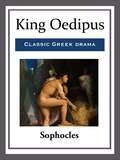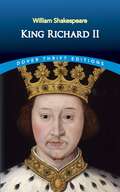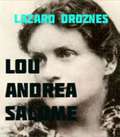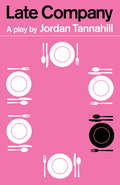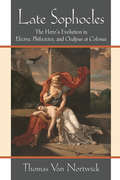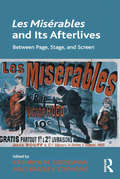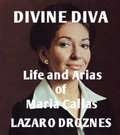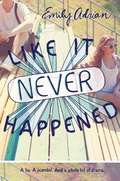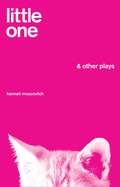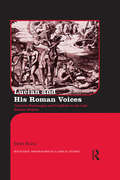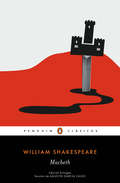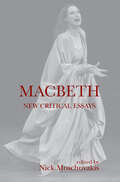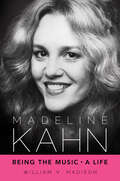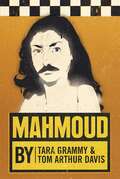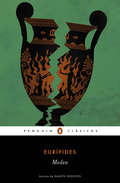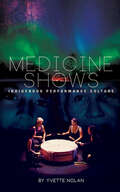- Table View
- List View
Jabber
by Dennis Foon Marcus YoussefLike many outgoing young women, Fatima feels rebellious against parents she sees as strict. It just so happens that she is Egyptian-born and wears a hijab. When anti-Muslim graffiti appears on the walls of her school, Fatima transfers to a new school. The guidance counsellor there, Mr. E., does his best to help Fatima fit in, but despite his advice she starts an unlikely friendship with Jorah, who has a reputation for anger issues. Maybe, just maybe, Fatima and Jorah start to, like, like each other ...As their mutual attraction grows, the lines Fatima and Jorah cross as they grow closer become the subject of an intense exploration of boundaries - personal boundaries, cultural boundaries, and inherited religious and political boundaries. Fatima and Jorah discover that appearances matter; they've been exposed for their whole lives to images that begin to colour their relationship: images of the Middle East, the working class, and how teenage boys and teenage girls behave. Put all these reactive factors together in the social laboratory that is a high school and observe: is there a solution for Fatima and Jorah?High school, like no other social space, throws together people of all histories and backgrounds, and young people must decide what they believe in and how far they are willing to go to defend their beliefs. Inside a veritable pressure cooker, they negotiate cross-cultural respect and mutual understanding. Jabber does its part to challenge appearances - and the judgments people make based on those appearances.
Jack & Louisa: Act 1 (Jack & Louisa #1)
by Kate Wetherhead Andrew Keenan-BolgerTwelve-year old Jack Goodrich was a Broadway star, with two shows under his belt and a third in rehearsals. But when his voice changes suddenly, Jack and his parents leave the spotlight and move from New York City to Shaker Heights, Ohio. While Jack hopes to leave his Broadway past behind, his new neighbor refuses to let him off the hook. Louisa is a self proclaimed "musical theater nerd" and can hardly believe when an actor moves to town. What's more, the local theater has announced auditions for her favorite show, "Into the Woods." As the audition date looms nearer, the two are faced with difficult choices. Should Jack risk humiliation and return to the stage? Will Louisa have confidence to go it alone? And can their friendship survive all those complicated octave leaps?
Jerzy Grotowski's Journeys to the East
by Zbigniew OsinskiJerzy Grotowski’s Journeys to the East is an unusual collection of facts, quotations, and commentaries documenting the real and metaphorical journeys of the Polish theatre director and ‘teacher of performers’ into a geographical and cultural dimension which we used to and still call the Orient. Grotowski’s contacts and meetings with the East are placed here in the context of his biography. Painstakingly researched by Grotowski’s main biographer Zbigniew Osiński, this book is necessary reading for those interested in Grotowski’s deep relationship with the East and in the inspiration he drew from its various cultures. The book will appeal to all readers who feel a need to have a glimpse of the East from the perspective of one of the main theatre reformers in the twentieth century.
Joy Ride
by John LahrJoy Ride throws open the stage door and introduces readers to such makers of contemporary drama as Arthur Miller, Tony Kushner, Wallace Shawn, Harold Pinter, David Rabe, David Mamet, Mike Nichols, and August Wilson. Lahr takes us to the cabin in the woods that Arthur Miller built in order to write Death of a Salesman; we walk with August Wilson through the Pittsburgh ghetto where we encounter the inspiration for his great cycle; we sit with Ingmar Bergman at the Kunglinga Theatre in Stockholm, where he attended his first play; we visit with Harold Pinter at his London home and learn the source of the feisty David Mamet's legendary ear for dialogue. In its juxtaposition of biographical detail and critical analysis, Joy Ride explores with insight and panache not only the lives of the theatricals but the liveliness of the stage worlds they have created.
Jung In Love
by Lázaro Droznes Sara Maria HasbunCarl Gustav Jung was a legendary womanizer. This dramatic fiction explores and illustrates the relationships C.G. Jung had with the four women most important to him: Emma Rauschenbach, his wife; Sabina Spielrein, his first patient and lover; Toni Wolff, patient, assistant, friend, and lover for 40 years; and finally, in his older years, with his student, Marie-Louise von Franz. Jung has made significant contributions to psychoanalysis, philosophy, sociology, and the comparative study of religion, and always needed the company of women to serve as his muses.
Kill Me Now
by Brad FraserWhen Joey enters puberty, his father Jake finds himself in a morally ambiguous position. Joey is severely disabled, but he still has the same sexual desires as any seventeen-year-old boy, only he can’t do anything to relieve the tension. Jake is a widower whose life is devoted to his son, but when he suddenly develops a serious medical condition, he becomes the one to rely on the people around him, including his sister Twyla, his friend Robyn, and Joey’s best friend Rowdy. As Jake’s condition worsens, an ethical dilemma troubles the household as everyone is forced to consider the possibility of saying goodbye.
King John (Dover Thrift Editions: Plays Ser.)
by William ShakespeareAmid a backdrop of war, conspiracy, and murder, this historical play depicts the troubled reign of King John, who ruled England from 1199 to 1216. Shakespeare's most enigmatic king struggles with the shifting loyalties of his nobles as well as threats from his covetous heirs and the burdens of his own conscience. The play, which abounds in battles and betrayals, explores issues of politics, inheritance, and legitimacy. John's problems are threefold: he has usurped the throne from the rightful heir, his nephew Arthur; his relationship with the Vatican is troubled; and he is highly unpopular with his own subjects. Shakespeare's portrayal of the despised monarch finds a more heroic figure in Sir Richard Plantagenet, an illegitimate son of Richard I. The Bastard, as John's loyal nephew is known, forms the moral center of the play as well as a source of irreverent humor and honesty. A cynical play about power struggles, King John offers a remarkably contemporary mix of history and ironic commentary, balanced in equal measures by elements of tragedy and satire.
King John (Mis)Remembered: The Dunmow Chronicle, The Lord Admiral's Men, And The Formation Of Cultural Memory
by Igor DjordjevicKing John’s evil reputation has outlasted and proved more enduring than that of Richard III, whose notoriety seemed ensured thanks to Shakespeare’s portrayal of him. The paradox is even greater when we realize that this portrait of John endures despite Shakespeare’s portrait of him in the play King John, where he hardly comes off as a villain at all. Here Igor Djordjevic argues that the story of John’s transformation in cultural memory has never been told completely, perhaps because the crucial moment in John’s change back to villainy is a literary one: it occurs at the point when the 'historiographic' trajectory of John’s character-development intersects with the 'literary' evolution of Robin Hood. But as Djordjevic reveals, John’s second fall in cultural memory became irredeemable as the largely unintended result of the work of three men - John Stow, Michael Drayton, Anthony Munday - who knew each other and who all read a significant passage in a little known book (the Chronicle of Dunmow), while a fourth man’s money (Philip Henslowe) helped move the story from page to stage. The rest, as they say, is history. Paying particular attention to the work of Michael Drayton and Anthony Munday who wrote for the Lord Admiral’s Men, Djordjevic traces the cultural ripples their works created until the end of the seventeenth century, in various familiar as well as previously ignored historical, poetic, and dramatic works by numerous authors. Djordjevic’s analysis of the playtexts’ source, and the personal and working relationship between the playwright-poets and John Stow as the antiquarian disseminator of the source text, sheds a brighter light on a moment that proves to have a greater significance outside theatrical history; it has profound repercussions for literary history and a nation’s cultural memory.
King Lear
by William Shakespeare Paul Werstine Dr Barbara MowatShakespeare's King Lear challenges us with the magnitude, intensity, and sheer duration of the pain that it represents. Its figures harden their hearts, engage in violence, or try to alleviate the suffering of others. Lear himself rages until his sanity cracks. What, then, keeps bringing us back to King Lear? For all the force of its language, King Lear is almost equally powerful when translated, suggesting that it is the story, in large part, that draws us to the play. The play tells us about families struggling between greed and cruelty, on the one hand, and support and consolation, on the other. Emotions are extreme, magnified to gigantic proportions. We also see old age portrayed in all its vulnerability, pride, and, perhaps, wisdom--one reason this most devastating of Shakespeare's tragedies is also perhaps his most moving. The authoritative edition of King Lear from The Folger Shakespeare Library, the trusted and widely used Shakespeare series for students and general readers, is now available as an eBook. Features include: · The exact text of the printed book for easy cross-reference · Hundreds of hypertext links for instant navigation · Freshly edited text based on the best early printed version of the play · Full explanatory notes conveniently placed on pages facing the text of the play · Scene-by-scene plot summaries · A key to famous lines and phrases · An introduction to reading Shakespeare's language · Illustrations from the Folger Shakespeare Library's vast holdings of rare books · An essay by a leading Shakespeare scholar providing a modern perspective on the play
King Oedipus
by SophoclesWidely regarded as one of the greatest Greek tragedies, 'King Oedipus' (or 'Oedipus Rex') is the first play in the Oedipus trilogy (followed by 'Oedipus at Colonus' and then 'Antigone'). After defeating the Sphinx and freeing the kingdom of Thebes from her curse, the flawed hero unwittingly fulfills a prophecy that he would kill his father and marry his mother.
King Richard II: With Preface, Glossary, Andc (Dover Thrift Editions)
by William Shakespeare"Not all the water in the rough rude sea/Can wash the balm off from an anointed king," declares the soon-to-be deposed ruler of this historical drama. Confident in his divine right, Richard II is an ineffective and unpopular king who abuses his power and sows the seeds of his own downfall. Toppled from the throne by Henry, his ambitious cousin, Richard only learns to value kingship after he loses it, achieving a tragic dignity only with his downfall.The first play in Shakespeare's "Henriad" series -- followed by Henry IV, Parts I and II, and Henry V -- Richard II portrays intense psychological struggles as well as a taut political drama. The only one of Shakespeare's plays written entirely in verse, it offers a grand, lyrical allegory and a poignant exploration of character.
LOU ANDREAS SALOMÉ
by Lázaro Droznes Pablo BarrantesDramatic fiction illustrating an extraordinary woman's rapport with three extraordinary men: Nietzsche, Rilke and Freud. Lou Andreas-Salomé had a love affair with Rilke, an intimate friendship with Nietzsche and a pupil, confidant propinquity with Freud. A muse of a woman who without a doubt had a vast influence on these, at the time, relatively unknown men.
Late Company
by Jordan TannahillOne year after the suicide of their teenage son Joel, Debora and Michael Shaun-Hastings sit down to dinner with their son’s bully and his parents. Closure is on the menu, but accusations are the main course as everyone takes a turn in the hot seat for their real or imagined part in the tragedy. Blame shifts over the course of the evening from one person to the next, and questions are raised that no one is prepared to answer.
Late Sophocles: The Hero’s Evolution in Electra, Philoctetes, and Oedipus at Colonus
by Thomas Van NortwickOnly a few plays by Sophocles--one of the great tragic playwrights from Classical Athens--have survived, and each of them dramatizes events from the rich store of myths that framed literature and art. Sophocles' treatment evokes issues that were vividly contemporary for Athenian audiences of the Periclean age: How could the Athenians incorporate older, aristocratic ideas about human excellence into their new democratic society? Could citizens learn to be morally excellent, or were these qualities only inherited? What did it mean to be a creature who knows that he or she must die? Late Sophocles traces the evolution of the Sophoclean hero through the final three plays, Electra, Philoctetes, and Oedipus at Colonus. The book's main thesis, that Sophocles reimagined the nature of the tragic hero in his last three works, is developed inductively through readings of the plays. This balanced approach, in which a detailed argument about the plays is offered in a format accessible to nonspecialists, is unusual--perhaps unique--in contemporary Classical scholarship on Sophocles. This book will appeal to nonspecialist readers of serious literature as well as scholars of classical and other literatures. While including ample guidance for those not familiar with the plays, Late Sophocles goes beyond a generalized description of "what happens" in the plays to offer a clear, jargon-free argument for the enduring importance of Sophocles' plays. The argument's implications for longstanding interpretational issues will be of interest to specialists. All Greek is translated.
Les Misérables and Its Afterlives: Between Page, Stage, and Screen
by Kathryn M. Grossman Bradley StephensExploring the enduring popularity of Victor Hugo’s Les Misérables, this collection offers analysis of both the novel itself and its adaptations. In spite of a mixed response from critics, Les Misérables instantly became a global bestseller. Since its successful publication over 150 years ago, it has traveled across different countries, cultures, and media, giving rise to more than 60 international film and television variations, numerous radio dramatizations, animated versions, comics, and stage plays. Most famously, it has inspired the world's longest running musical, which itself has generated a wealth of fan-made and online content. Whatever its form, Hugo’s tale of social injustice and personal redemption continues to permeate the popular imagination. This volume draws together essays from across a variety of fields, combining readings of Les Misérables with reflections on some of its multimedia afterlives, including musical theater and film from the silent period to today's digital platforms. The contributors offer new insights into the development and reception of Hugo's celebrated classic, deepening our understanding of the novel as a work that unites social commentary with artistic vision and raising important questions about the cultural practice of adaptation.
Life and Arias of María Callas
by Lázaro Droznes Pablo BarrantesLife and arias from María Callas María Callas was probably the greatest soprano of "bel canto". Her life, filled with many ups and downs, can only be compared to the lives of the tragic heroines she used to represent in her scenes. Her trajectory largely exceeded the theatre lyric limits when she became a diva that attracted the interest of the masses, and an international "jet set" star. The play, narrated in first-person by the Diva, portrays the main instances of her tumultuous life, alternated with her most famous arias, which serve to illustrate and foreshadow her tragic fate.
Like It Never Happened
by Emily AdrianStereotypes, sexuality, and destructive rumors collide in this smart YA novel for fans of Sara Zarr's Story of a Girl, Siobhan Vivian's The List, and E. Lockhart's The Disreputable History of Frankie Landau-Banks.When Rebecca Rivers lands the lead in her school's production of The Crucible, she gets to change roles in real life, too. She casts off her old reputation, grows close with her four rowdy cast-mates, and kisses the extremely handsome Charlie Lamb onstage. Even Mr. McFadden, the play's critical director, can find no fault with Rebecca.Though "The Essential Five" vow never to date each other, Rebecca can't help her feelings for Charlie, leaving her both conflicted and lovestruck. But the on and off-stage drama of the cast is eclipsed by a life-altering accusation that threatens to destroy everything...even if some of it is just make believe.
Little One and Other Plays
by Hannah MoscovitchA chilling psychological thriller, Little One is the haunting story of adopted siblings Aaron and Claire—one the definition of normal, the other deeply disturbed and unpredictable—and the strange lives of their neighbours, a man and his mail-order bride. In Other People’s Children, wealthy young power couple Ben and Ilana hire Sati, a live-in nanny, to care for their baby daughter, but Sati ends up being more than a caretaker, exposing the fragility of Ben and Ilana's marriage. Is she filling the holes of their relationship, or widening cracks that will shatter their family? High school is hard, especially for Neyssa, who is not from a privileged family like her best friend Bijou. When the two get into a physical fight at school, they must confront what’s really bothering Neyssa. In This World looks at what friendship means to two teenage girls from vastly different social backgrounds, while dealing with racism, class, and reputation.
Lucian and His Roman Voices: Cultural Exchanges and Conflicts in the Late Roman Empire (Routledge Monographs in Classical Studies #19)
by Eleni BoziaLucian and His Roman Voices examines cultural exchanges, political propaganda, and religious conflicts in the Early Roman Empire through the eyes of Lucian, his contemporary Roman authors, and Christian Apologists. Offering a multi-faceted analysis of the Lucianic corpus, this book explores how Lucian, a Syrian who wrote in Greek and who became a Roman citizen, was affected by the socio-political climate of his time, reacted to it, and how he ‘corresponded’ with the Roman intelligentsia. In the process, this unique volume raises questions such as: What did the title ‘Roman citizen’ mean to native Romans and to others? How were language and literature politicized, and how did they become a means of social propaganda? This study reveals Lucian’s recondite historical and authorial personas and the ways in which his literary activity portrayed second-century reality from the perspectives of the Romans, Greeks, pagans, Christians, and citizens of the Roman Empire
Macbeth
by William ShakespeareIntended for schools, these paperback editions include the complete and unabridged text of the play accompanied by notes giving explanations of difficult words or parts of the text.
Macbeth: New Critical Essays (Shakespeare Criticism)
by Nick MoschovakisThis volume offers a wealth of critical analysis, supported with ample historical and bibliographical information about one of Shakespeare’s most enduringly popular and globally influential plays. Its eighteen new chapters represent a broad spectrum of current scholarly and interpretive approaches, from historicist criticism to performance theory to cultural studies. A substantial section addresses early modern themes, with attention to the protagonists and the discourses of politics, class, gender, the emotions, and the economy, along with discussions of significant ‘minor’ characters and less commonly examined textual passages. Further chapters scrutinize Macbeth’s performance, adaptation and transformation across several media—stage, film, text, and hypertext—in cultural settings ranging from early nineteenth-century England to late twentieth-century China. The editor’s extensive introduction surveys critical, theatrical, and cinematic interpretations from the late seventeenth century to the beginning of the twenty-first, while advancing a synthetic argument to explain the shifting relationship between two conflicting strains in the tragedy’s reception. Written to a level that will be both accessible to advanced undergraduates and, at the same time, useful to post-graduates and specialists in the field, this book will greatly enhance any study of Macbeth. Contributors: Rebecca Lemon, Jonathan Baldo, Rebecca Ann Bach, Julie Barmazel, Abraham Stoll, Lois Feuer, Stephen Deng, Lisa Tomaszewski, Lynne Bruckner, Michael David Fox, James Wells, Laura Engel, Stephen Buhler, Bi-qi Beatrice Lei, Kim Fedderson and J. Michael Richardson, Bruno Lessard, Pamela Mason.
Madeline Kahn: Being the Music, A Life (Hollywood Legends Series)
by William V. MadisonBest known for her Oscar-nominated roles in the smash hits Paper Moon and Blazing Saddles, Madeline Kahn (1942–1999) was one of the most popular comedians of her time—and one of the least understood. In private, she was as reserved and refined as her characters were bold and bawdy. Almost a Method actor in her approach, she took her work seriously. When crew members and audiences laughed, she asked why—as if they were laughing at her—and all her life she remained unsure of her gifts. William V. Madison examines Kahn's film career, including not only her triumphs with Mel Brooks and Peter Bogdanovich, but also her overlooked performances in The Adventure of Sherlock Holmes' Smarter Brother and Judy Berlin, her final film. Her work in television—notably her sitcoms—also comes into focus. New York theater showered her with accolades, but also with remarkably bad luck, culminating in a disastrous outing in On the Twentieth Century that wrecked her reputation on Broadway. Only with her Tony-winning performance in The Sisters Rosensweig, fifteen years later, did Kahn regain her standing. Drawing on new interviews with family, friends, and such colleagues as Lily Tomlin, Carol Burnett, Gene Wilder, Harold Prince, and Eileen Brennan, as well as archival press and private writings, Madison uncovers Kahn's lonely childhood and her struggles as a single woman working to provide for her erratic mother. Above all, Madison reveals the paramount importance of music in Kahn's life. A talented singer, she entertained offers for operatic engagements long after she was an established Hollywood star, and she treated each script as a score. As Kahn told one friend, her ambition was “to be the music.”
Mahmoud
by Tara Grammy Tom Arthur DavisMahmoud is an exuberant, if overwhelmingly passionate, Iranian engineer-cum-taxi driver who relishes the chance to regale his passengers with his love of Persian culture. Emanuelos, a fabulously gay Spanish perfume salesman, can talk a mile-a-minute about his boyfriend, Behnam. And then there's Tara, an awkwardly charming Iranian Canadian preteen who just wants to be "normal," whatever that means. When the three strangers find themselves crossing paths in the busy streets of Toronto, their experiences with racism, sexism, homophobia, homesickness, and everything in between become intertwined in unexpected ways.
Medea (Los mejores clásicos #Volumen)
by EurípidesLos mejores libros jamás escritos. La más importante de las obras de Eurípides y uno de los trabajos que mejor representan su concepción de lo trágico, muy distinta a la de Sófocles y Esquilo Jasón no solo regresó de la Cólquide con el vellocino de oro, sino que también sedujo a la hija del rey Eetes, Medea. A su vuelta a Yolco, hallan un escenario de traición familiar del que huyen dejando un rastro carmesí. Cuando recalen en Corinto, Medea desplegará una pavorosa venganza contra Jasón al descubrir que pretende a la hija del rey Creonte. Este imperecedero personaje femenino recoge las leyendas que veían a la hechicera como una mujer exótica y salvaje que, por amor, despierta el lado atroz de lo humano. Sus coetáneos decían que Eurípides prefería representar «las cosas como son y no como debieran», y ello quizá sea lo que nos sigue atrayendo de esta princesa extranjera: su cruda realidad, surepulsión natural hacia el perjurio, su asimilación negada, su temible ira, su compromiso con la sangre. La presente edición de Medea cuenta con la versión y la introducción del helenista, escritor y traductor Ramón Irigoyen. Asimismo, los profesores de comunicación audiovisual de la Universidad Pompeu Fabra Jordi Balló y Xavier Pérez han escrito a cuatro manos el epílogo «La venganza triunfal». «Venga, pues, ármate de valor, corazón mío. ¿Por qué aplazar el perpetrar el terrible y necesario mal?»
Medicine Shows: Indigenous Performance Culture
by Yvette NolanContemporary Indigenous theatre in Canada is only thirty-three years old, if one begins counting from the premiere of Maria Campbell’s Jessica in Saskatoon and the establishment of Native Earth Performing Arts in Toronto. Since those contemporaneous events in 1982, the Canadian community of Indigenous theatre artists has grown and inspired one another.Medicine Shows: Indigenous Performance Culture traces the work of a host of these artists over the past three decades, illuminating the connections, the artistic genealogy, and the development of a contemporary Indigenous theatre practice. Neither a history nor a chronicle,Medicine Shows examines how theatre has been used to make medicine, reconnecting individuals and communities, giving voice to the silenced and disappeared, staging ceremony, and honouring the ancestors.
